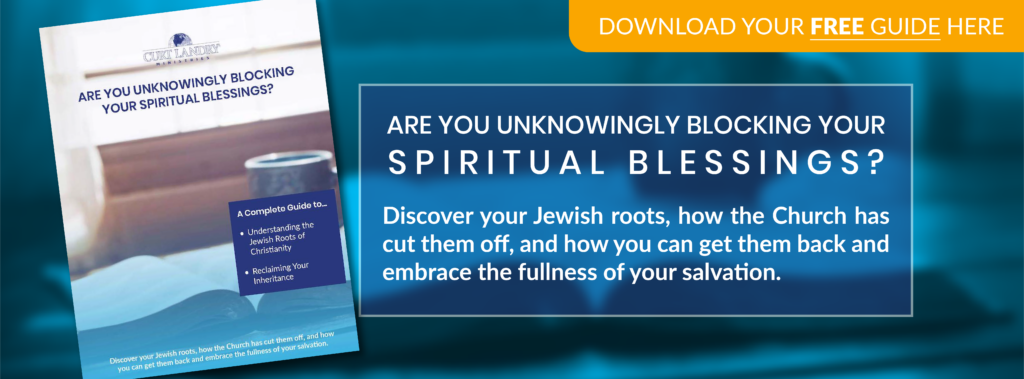Does Tolerance in the Church Lead to Compromised Faith?
Tolerance is a word that has many in the Church today confused about how to deal with differences of lifestyles—differences that many believe veer away from biblical teaching and principles.
There’s a tension within the concept of tolerance—it’s a push-and-pull sort of notion. It’s as if we are walking on a tightrope in our culture, and the Church is being hit hard with the spiritual warfare involving tolerance.
You see picketing, marches, and other events in the news, with Believers standing up for biblical values and being viewed as “intolerant” as a result.
Yet, if Believers were “tolerant” of every behavior and belief in our culture, wouldn’t they compromise what their faith was built upon—the truth and biblical teaching in the Bible that is God’s opinion, not culture’s?
Cultural tolerance has the potential of quickly stepping out of alignment with God.
The World’s View of Tolerance
In our world, tolerance is based upon what the social norm is at the time. It’s changing. Yet, remember that truth never changes, or it would no longer be truth.
For example, the way a person chooses to define marriage can shift and change based on the circumstance of the culture they are in. But the Lord’s view remains the same.
If we define right and wrong, moral and immoral, tolerant and intolerant based on our opinion, truth becomes relative. We’ve all heard, “What’s right for you just isn’t right for me.” This is how our culture—the world—views tolerance.
The world says we get to choose what is truthful and right. And the lie we believe is that when we choose, we then will (and should be) happy.
When tolerance isn’t aligned with truth, we haven’t just stepped onto sandy soil, we’ve made a leap into a mudslide in motion.
Reconciling Biblical Contradictions
So then, how do we reconcile Bible verses such as…
- “Judge not, that you be not judged.”—Matthew 7:1
- “Hypocrite! First remove the plank from your own eye, and then you will see clearly to remove the speck from your brother’s eye.”—Matthew 7:5
- “So when they continued asking Him, He raised Himself up and said to them, ‘He who is without sin among you, let him throw a stone at her first.’”—John 8:7
…if we aren’t to be tolerant based on a worldview?
Let’s find out.
What’s the Right Question to Ask? Aligning My Heart
Maybe we should be asking ourselves what God’s view of tolerance is in today’s world. Perhaps we should prayerfully consider how to walk by the Spirit in regard to matters that seem to divide Believers, congregations, and families.
We must approach issues within our family—both the immediate family, as well as brothers and sisters in Christ—that may cause division, with humility. Seeking the Holy Spirit’s wisdom and guidance, and confirming it by the Word, is the only way to discern matters that seem to be a paradox in teaching.
We must have a heart to see healing and transformation happen in the lives of those who aren’t walking in alignment with God—not with a motive to be “right,” but with a desire to see change.

Was Jesus Tolerant?
Jesus Himself made the statements listed above that bring to light how easy it is for us to pin others down with a judging heart. Therefore, when reading any of God’s Word, we must carefully examine the scriptures to understand the verses in their context.
The Lord was addressing the hypocrisy of the religious leaders at the time (the culture) and pointed out the religious spirit in their hearts.
The key to everything our Messiah taught was that it was perfectly aligned with the will of God. He was able to discern matters of the heart, divide bone from marrow, and determine that “tolerance” or “intolerance” should never be a justification for sin.
What We Should Never Forget…
As ambassadors of Christ in this season of God’s calendar, we must never forget the two crucial, yet perfectly balanced and righteous, sides of our Father—His unconditional and ever-faithful love, and His perfect judgment of sin.
If we only look at one of God’s attributes, we are robbed of our blessings.
Perfect Love
- “Beloved, let us love one another, for love is of God; and everyone who loves is born of God and knows God. He who does not love does not know God, for God is love… If we love one another, God abides in us, and His love has been perfected in us.”—1 John 4:7-8, 12
If we see His love as a toleration for sin, we call Him a liar.
Perfect Judgment
- “You who love the Lord, hate evil!…”—Psalm 97:10
- “For everyone practicing evil hates the light and does not come to the light, lest his deeds should be exposed.”—John 3:20
- “For You are not a God who takes pleasure in wickedness, nor shall evil dwell with You.”—Psalm 5:4
If we see His judgment as justification for us to operate in a religious spirit, we miss the blessing of witnessing spiritual transformation in others.
We Should Never Mistake Love as Tolerance
One snare many Believers get trapped in, especially in regard to relationships with family and other Believers, is the idea that love should equal tolerance.
This simply isn’t the case.
Love is setting your own needs and desires aside and putting another’s above your own. If you believe that we are born into a sinful world, separated from God, and Yeshua Messiah is your Savior and Redeemer, then your concern for others flows from this truth.
Love is not selfish. If your need to “correct” another comes from a place of wanting to be right rather than from the knowledge that it grieves the Lord’s heart, this isn’t love. Instead, a desire to restore wholeness and healing for your bother and sister in Christ is in alignment with God’s plan of reconciliation.
Love does not rejoice in iniquity. If someone you love is engaging in sinful behaviors that are against God’s will, this will sadden your soul. Speaking truth into their life could bring the hope that they need to be delivered from the bondage.
“Love… does not seek its own, is not provoked, thinks no evil; does not rejoice in iniquity, but rejoices in the truth; bears all things, believes all things, hopes all things, endures all things.”—1 Corinthians 13:4, 5-7
Understanding the Spiritual Battle Within the Church
The Church is not immune to spiritual attacks. Spiritual battles within the Church are very real and manifesting in Church culture today.
Jesus said this…
If the world hates you, you know that it hated Me before it hated you. If you were of the world, the world would love its own. Yet because you are not of the world, but I chose you out of the world, therefore the world hates you.
“Remember the word that I said to you, ‘A servant is not greater than his master.’ If they persecuted Me, they will also persecute you. If they kept My word, they will keep yours also. But all these things they will do to you for My name’s sake, because they do not know Him who sent Me.
“If I had not come and spoken to them, they would have no sin, but now they have no excuse for their sin. He who hates Me hates My Father also. If I had not done among them the works which no one else did, they would have no sin; but now they have seen and also hated both Me and My Father.
“But this happened that the word might be fulfilled which is written in their law, ‘They hated Me without a cause.’”—John 15:18-25
May this provide hope to those who have a heart after God and want to see the Body of Christ walk into the fullness of its calling. Stand by truth and understand it isn’t you the world is against, but God.
Battling Spiritual Attacks by Understanding Our Jewish Roots
Understanding the ancient Jewish teachings that the Lord established through Abraham, Moses, and the founding fathers of our faith gives you insights into how the Church and Israel—together as One New Man—were designed to be set apart from the world, to be God’s representatives of perfect love and righteousness.
God established His covenant with Abraham by the shedding of blood. He did this again at the cross. Jesus’ blood fulfilled the law so that we may be forever reconciled to the Father. And that blood is our protection in battle.
In Leviticus, blood was described as the life of the flesh, “and I have given it to you upon the altar to make atonement for your souls; for it is the blood that makes atonement for the soul” (Leviticus 17:11).
Only because the Father provided a way for atonement through blood and the perfect sacrifice in Jesus, can we understand and fight the spiritual battle within the Church and be victorious!
So, let us move forward in unity as the Body of Christ and understand the power of the covenant we’ve made with God, standing in His truth—allowing the Spirit to equip us to bring His authority to earth.
Learn more about the Jewish roots of your faith! Download your FREE Complete Guide to Understanding How the Jewish Roots Have Been Removed from the Christian Church!
Just click on the link below…
In Summary
There is a spiritual battle within the Church that is very real. The battle is
about tolerance in the Church—tolerance that sets itself up against biblical
principles.
We can reconcile biblical contradictions by answering how Jesus was “tolerant” and battle spiritual attacks by understanding our Jewish roots of the faith—the life-giving blood of Jesus and covenant knowledge.
